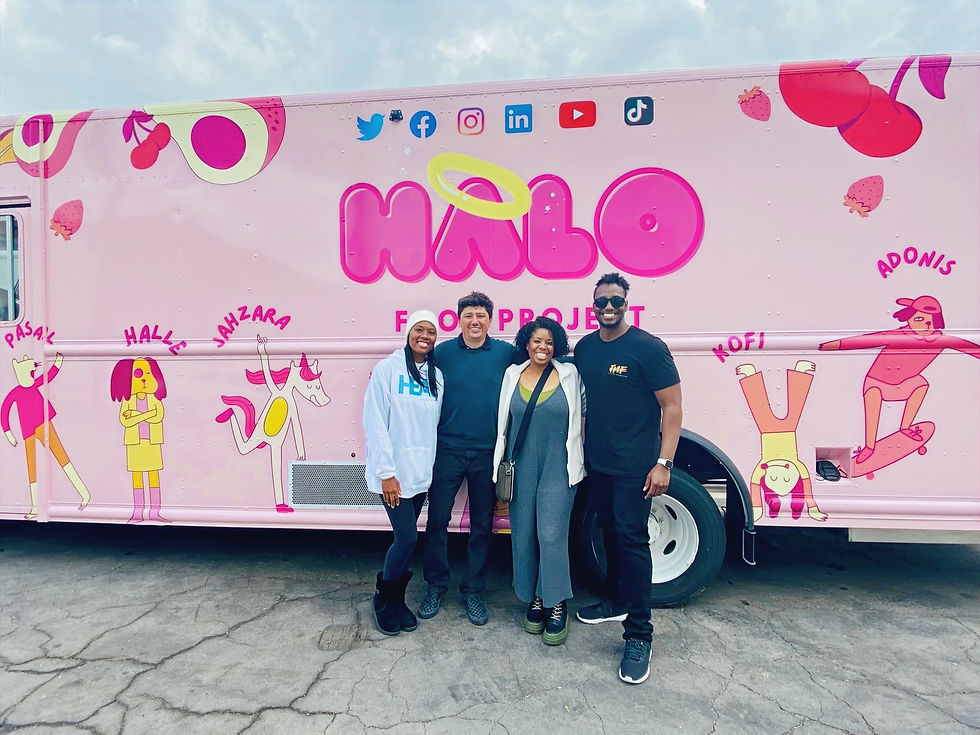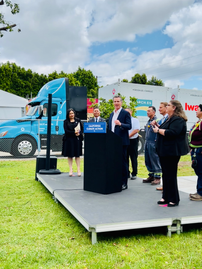- Aug 30, 2023
- 3 min read

Clean Truck Check
The Clean Truck Check program (formerly the Heavy-Duty Inspection and Maintenance program) requires reporting, vehicle testing, and compliance fees for non-gasoline vehicles with a gross vehicle weight rating (GVWR) greater than 14,000 pounds operating in California. Similar to California's Smog Check program for light-duty vehicles, the goal of Clean Truck Check is to ensure that heavy-duty vehicles operating in California remain equipped with properly functioning emissions controls, and when malfunctioning, that these components are repaired in a timely manner.
By December 31, 2023, vehicle owners need to complete registration of their vehicles in the Clean Truck Check database and pay a $30 per vehicle 2023 annual compliance fee.
Advanced Clean Fleets
The Advanced Clean Fleets (ACF) regulation applies to fleets that operate drayage vehicles, fleets owned by state, local, and federal government agencies, and high-priority fleets. High-priority fleets are entities that:
Own, operate, or direct at least one vehicle in California.
Have either gross annual revenues of $50 million or more, or
Own, operate, or have common ownership or control of a total of 50 or more vehicles (excluding light-duty package delivery vehicles).
The regulation affects medium- and heavy-duty on-road vehicles with a GVWR greater than 8,500 pounds, off-road yard tractors, and light-duty mail and package delivery vehicles.
Drayage Trucks
Beginning January 1, 2024, all drayage trucks operating in California must be registered in the California Air Resources Board (CARB) Online System.
Non-zero-emission "legacy" drayage trucks may register in the CARB Online System through December 31, 2023.
Legacy drayage trucks can continue to operate through their minimum useful life, which is typically 18 years.
Beginning January 1, 2024, only zero-emission drayage trucks may register in the CARB Online System.
All drayage trucks entering seaports and intermodal railyards will be required to be zero-emission by 2035.
State and Local Government Fleets
State and local government fleets in California are required to purchase zero-emission vehicles (ZEVs) for a portion of their annual vehicle purchases. The specific requirements are as follows:
Beginning January 1, 2024: 50% of all annual vehicle purchases must be ZEVs.
Beginning January 1, 2027: 100% of all annual vehicle purchases must be ZEVs.
Small government fleets (those with 10 or fewer vehicles) and those in designated counties are not required to start purchasing ZEVs until January 1, 2027. However, they are encouraged to do so sooner.
State and local government fleet owners may also elect to meet ZEV targets using the ZEV Milestones Option. This option allows them to purchase a mix of ZEVs and internal combustion engine (ICE) vehicles, as long as they meet certain milestones.
The ZEV Milestones Option is available until January 1, 2030. After that date, all state and local government fleets will be required to purchase 100% ZEVs.
High priority and federal fleets.
High priority and federal fleets must comply with the Model Year Schedule or may elect to use the optional ZEV Milestones Option to phase-in ZEVs into their fleets:
Model Year Schedule: Fleets must purchase only ZEVs beginning in 2024 and, starting January 1, 2025, must remove internal combustion engine vehicles at the end of their useful life as specified in the regulation.
ZEV Milestones Option (Optional): Instead of the Model Year Schedule, fleets may elect to meet ZEV targets as a percentage of the total fleet starting with vehicle types that are most suitable for electrification.
Transport Refrigeration Unit (TRU) Airborne Toxic Control Measure (ATCM)
The TRU ATCM applies to owners and operators of diesel-fueled TRUs and TRU generator sets that operate in California, regardless of whether they are registered in or outside the state. This regulation requires zero-emission truck TRUs, a PM emission standard for newly manufactured non-truck TRUs, TRU reporting, TRU labeling, facility registration, and fees.











